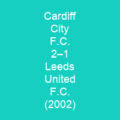Leonard James Callaghan, Baron Callaghan of Cardiff, KG, PC, was a British politician. He served as Prime Minister of the United Kingdom from 1976 to 1979. He also served as Chancellor of the Exchequer, Home Secretary and Foreign Secretary. Callaghan is the only person to have held all four Great Offices of State.
About James Callaghan in brief

After Labour was defeated at the 1970 general election, he played a key role in the Shadow Cabinet. In 1974 he became Foreign Secretary, taking responsibility for renegotiating the terms of the UK’s membership of the European Communities, and supporting a \”Yes\” vote in the 1975 referendum to remain in the EC. In 1976 he became Prime Minister, defeating five other candidates to be elected as his replacement. He continued as Labour Party leader until November 1980, and campaigned to reform the process by which the party elected its leader, before returning to the backbenches where he remained until he was made a life peer as Baron Callagan of Cardiff. He had a son and a daughter, Dorothy Gertrude Callaghan and daughter, Charlotte Callaghan. His mother was an English Baptist, and he married Charlotte in a Baptist chapel. His father ran away from home in the 1890s to join the Navy; as he was a year too young to enlist, he gave a false date of birth and changed his surname from Garogher to Callaghan so that his true identity could not be traced. In 1919, he joined the Coastguard and the town of Brixham in Devon, however he later died only two years later. His family moved to Portsmouth in 1924 when the first Labour government was elected, but he could no longer rely on the charity. In 1929, he gained the Oxford Senior Certificate in 1929, and went on to become an Oxford Senior School teacher.
You want to know more about James Callaghan?
This page is based on the article James Callaghan published in Wikipedia (as of Dec. 08, 2020) and was automatically summarized using artificial intelligence.







